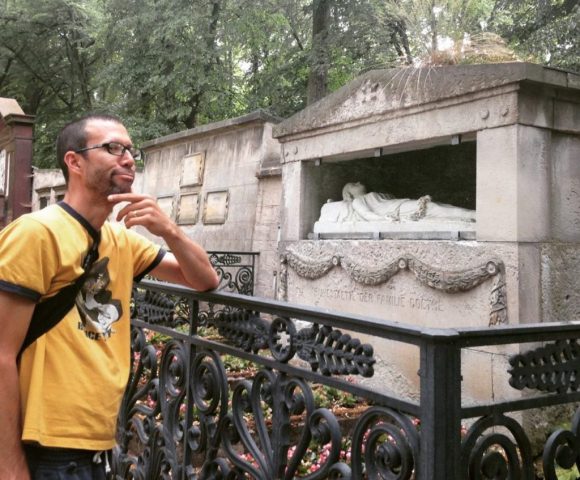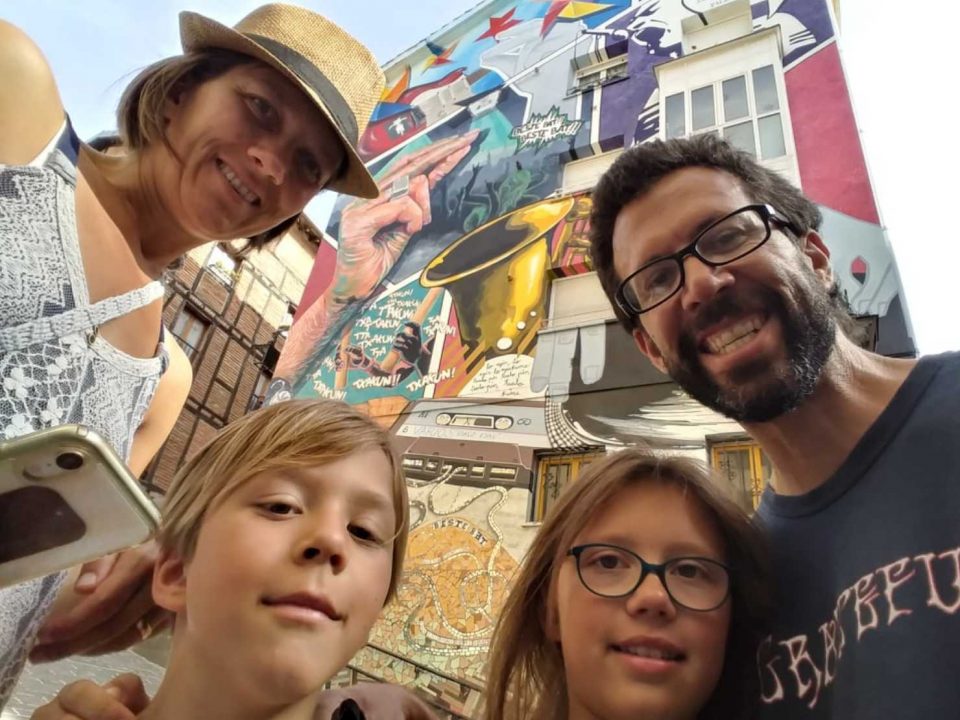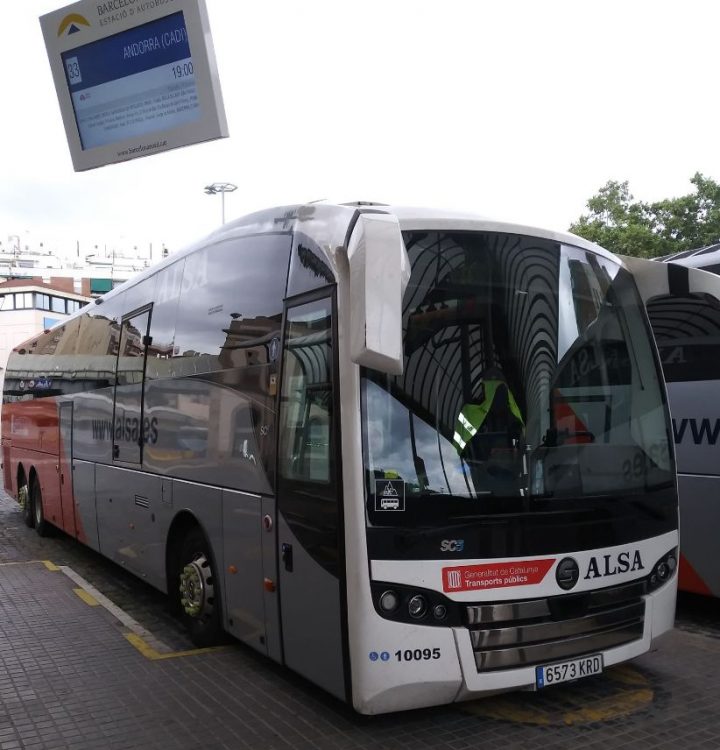
Philosophizing in Weimar: Excursions in the German Dialectic
July 13, 2018
Caravanning with kids: 7 tips for surviving the European rest stops
July 27, 2018As the world around us appears to devolve into tribes and factions, our family is spending the summer trying to bridge the yawning gaps between nations, languages and cultures. At the same time, we insist on honoring and celebrating the vital differences, the rainbow of variety that colors our world with vibrant diversity.
We walk a fine line as foreigners of mixed descent, trying to fit in with our Catalunyan community on one hand and to instill a sense of cultural identity in our children on the other. The challenges only intensify as issues of globalism, nationalism and xenophobia flare up across Europe and America.
Crisis in Catalunya
Europe has recently witnessed a disturbing surge in right-wing extremism, observable in elections throughout the continent, most notably last month in Hungary where the fear of unrestrained immigration and excessive influence from Brussels drove the country to elect an ethnocentric, isolationist government. Fascist and neo-nazi parties have also made marked gains in France, Austria, even Scandinavia.
Meanwhile, the situation in Spain grows more and more interesting. What we’ve seen at ground zero, in the heart of Catalunya, seems to differ greatly from the perceptions of the outside world. Catalunyans are a proud people, with a long, historic yearning for independence. Last October they called for an election, to see how many in the Spanish state wanted to declare independence from Madrid. Conventional wisdom suggests that the election might have been close, but in favor unity with Spain.
The Spanish government, however, reacted swiftly with an iron fist, doing everything they could to prevent the election. With every step made by Madrid, the Catalunyans were increasingly reminded of the times of Francisco Franco, when Fascism was the law of the land, and every effort was made to exterminate Catalunya’s language and culture. When the Civil War ended, Catalunya remained the last stronghold of resistance, and their failure to conform and comply has been held against them ever since. Only since Franco’s death in 1975 has Spain made the transition to democracy, a transition that has been both slow coming and incomplete. (Read more about Franco’s memorial tomb near Madrid here.)
When we arrived in Catalunya last summer, I have to admit I was more than a little bit skeptical about the idea of separatist movement, which has been ongoing for many decades. But observing first hand the behavior of Catalunyans and the reactions from Madrid over the past several months, it has become impossible not to see the situation differently.
Catalunyans are proud of their heritage, no doubt, but they are anything but nationalist and disagreeable towards outsiders. If they wanted a reason to give us the cold shoulder, they would have no difficulty finding one. We are German and American after all. But we have received nothing but warmth and hospitality from everyone we’ve met, even in the most remote and “backwards” hinterland where we have been settled for the last year.
Personally, they are open minded, forward thinking and positively oriented. Politically, they are decentralized and well organized, peaceful and respectful. They seek autonomy from Madrid, where the royalists are alive and well and Franco is still remembered as a hero. But they also envision a future of cooperation with EU and the international community. Isolationists they are most certainly not.
We have yet to raise the Catalunya flag over our front porch, but we are pleased as punch to have been so well received by the locals. While the wave of populism rolls through America and much of Europe, it’s clear to us that the Catalunya independence movement is not the product of this same flavor of rabid nationalism we’ve seen elsewhere. As America erects tariffs against Asia and Europe, gives NATO the finger, and seeks to dissolve international treaties; Catalunya embraces outside ideas and seeks to strengthen its own ties with European trading partners.
The tendency to oversimplify the benefits of free trade, centralized governance from Brussels, and neo-liberalism in general, can be seen everywhere, particularly among those who’ve benefited from it. Yet critics of globalization run the gamut, from the populist-nationalism of Donald Trump to the back-and-forth blustering of Brexit, to the traffic-stopping protests of Catalunya. But many of the criticisms are real, and unless we take them seriously and look for meaningful solutions, the critics will more and more resemble blowhard iconoclasm, and less and less constructive problem solving. Just another reason to support, or at least make an effort to understand, the sentiments behind Catalunya independence.
Continental Congress
This summer we ventured outside the Pyrenean bubble of Catalunya pride and made our way through France and Germany to survey the broader political climate among a few of the more sensible people we know here on the continent. We really needed to drive to Germany anyway to renew our car registration and check in with the grandparents, but our need to run a few long-distance errands dove-tailed nicely with the pursuit of my own curiosities in the area of international relations.
Our first rendezvous was with a former Work-Away host in the middle of France, about a two-day drive north from our home in Cerdanya. Last year we helped them with some restoration and renovation of their now nearly-finished guesthouse—a beautiful blend of casual luxury and tangible history—about 30 minutes outside of Clermont-Ferrand. They called on us again because they’re now ready to set up a website for their guesthouse, and knew they could count on us. We were happy to stop by and pay a visit because their historic home is like a piece of paradise, and their two children are a ton of fun, very close in age to our own.
The couple moved from the UK and bought the property about 5 years ago, and their kids are now perfectly bilingual. Dad is Scottish, mom is from western England, and they were probably the first two people I met who openly supported the vote for Brexit. It was in fact one of the first things he mentioned when we met last year, and I was admittedly a bit skeptical when he did. I knew little about it at the time, but the bulk of what I’d heard about Brexit characterized the whole movement as another screwball scheme from the same people who gave us a reality TV host for President.
He was well aware of this crackpot element, and made every effort to distance himself from it. In the end, he did so rather well, successfully explaining a few of the more well-reasoned arguments for restoring economic autonomy to the British Isles. As usual, few controversies in the arena of global politics and international finance are quite as cut-and-dry as we would like to believe. I can’t say I was persuaded to support the cause, but I have remained vehemently agnostic ever since.
Throughout the recent events in Spain, which I won’t bother to recount here in their entirety, few Europeans have spoken out in support of Catalunya. That is, except for the Scottish separatists whose bid for independence was narrowly defeated in an election just a couple years ago. It came as no surprise then that our old hosts were also quite sympathetic to the cause of Catalunya.
After two nights in the French countryside, we continued onward toward Germany, the real headquarters of the European Union. The administrative capital may be in Brussels, but it is Germany that sets the pace, determining interest rates and fiscal policy for the single currency zone. It’s no surprise then that German also reaps the greatest benefits from EU policy, or so many will claim, especially those in the poorer EU countries like Spain, Portugal and Italy.
On one side, there are Germans who credit Angela Merkel for the country’s remarkable prosperity, as evidenced by the ubiquity of infrastructure investment. (It looks like every city in German is currently the site of a massive construction project, which makes driving through a bit of a pain in the knackwurst.) On the other side, there are those who despise Merkel for letting more than a million refugees into the country in the last few years. Although none of them can site specific examples of how these foreigners have reduced their access to to health care, reduced their wages, or increased their taxes.
Once again, there is nothing neither simple nor black and white about these matters. And any attempt to over-simply them will probably not end well. Whether it’s Trump, Brexit, Catalunya, or the European Central Bank, you are certain to see buckets of B.S. being spewed from both sides of every contentious debate. Vapid headlines, angry slogans, cans of tear gas, and mocking balloons—none of these will bring us closer to consensus, and none addresses the underlying grievances.
As with so many other blog posts, I will try to complete this story in another post, and before too long.
(Photo taken of me at the tomb of Goethe in Weimar, Germany.)
FURTHER READING: For more entertaining stories about the Spanish culture, be sure to check these articles on the Absurdity of Spanish Immigration, Spanish Assimilation, Plenty of room at the Hotel Catalunya, and Settling Down in a Spanish Village.





